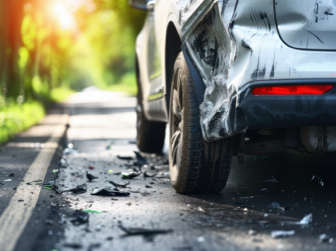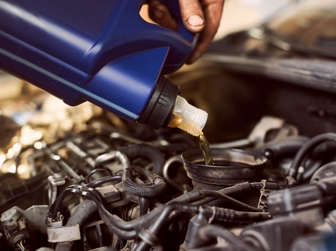Buying a Certified Pre-owned Car? Avoid These Mistakes
Shifting trends in the used car market have been evident for some time, driven by changing vehicle preferences, financial trends, and market growth projections. While many South Africans aspire to own new cars, affordability and practicality remains a challenge—making pre-owned vehicles the preferred choice. To highlight the boom, revenue from used car sales surpassed R2 billion over the last year, with projections suggesting it could exceed R3 billion by 2030.
In contrast, new vehicle sales have declined by 3% in 2024 compared to the previous year. This shift is largely driven by rising fuel prices, tariffs, and inflation—factors that have also influenced buyers to go the pre-owned route.
Navigating the pre-owned landscape
According to WesBank's 2024 Q1 data, for every one new car finance application, there were more than two applications for pre-owned vehicles.
Why are more people choosing pre-owned cars?
The main reason is affordability. As WesBank's Head of Marketing and Communication, Lebo Gaoaketse, explains:
- Used cars are generally much cheaper than brand-new ones because vehicles lose value over time.
- Some rare or classic cars are exceptions, as their prices can increase due to high demand and limited availability.
However, buying a second-hand car does come with some downsides:
- The Maintenance Plan, Service Plan, or manufacturer’s Warranty may have expired, meaning you’ll have to cover all repair costs yourself.
- The car’s condition depends on how well the previous owner took care of it. That’s why it’s crucial to buy from a trusted dealer who checks the car thoroughly before selling it.
- Unlike new cars, used car buyers can’t customise their vehicle with specific features—they have to choose from what's available, which can mean spending a lot of time searching for the right car.
Mistakes to avoid when purchasing a used car
Unfortunately, trends indicate that South Africa's vehicle history record system is unreliable, with less than 40% of vehicles being insured. This raises concerns about the safety and condition of vehicles on the market and on the roads. Some insurers are declining coverage for cars due to a lack of vehicle history reports, while others (albeit, on the rare occasion) are accused of being involved in fraudulent car sales. This makes it even more challenging for unsuspecting customers to find a reliable pre-owned vehicle.
So, if you’re in the market for a second-hand vehicle, here are some tips on how you can make a safe and confident purchase:
- Not Checking the Vehicle History:
- Always ask for a detailed vehicle history report to check for past accidents, repairs, or title issues. Skipping this step can lead to unexpected surprises.
- Skipping a Mechanical Inspection:
- Even if the car looks good on the outside, it’s crucial to have it inspected by a professional mechanic to ensure there are no hidden mechanical issues.
- Not Researching the Market Value:
- Don’t rely solely on the seller’s price. Research the market value of the car and compare prices from different dealerships or private sellers to ensure you're getting a fair deal.
- Overlooking Warranty and Return Policies:
- Make sure you understand the warranty or return policy of the car you're buying. Some pre-owned cars might not come with a warranty, or the warranty may be close to expiring.
- Neglecting to Test Drive the Car:
- Always take the car for a test drive to check its performance. Listen for any strange sounds, and assess its comfort and handling.
- Focusing Only on Price:
- While price is important, it’s not everything. Consider the car’s condition, safety features, fuel economy, and maintenance costs before making your decision.
- Not Factoring in Future Maintenance Costs:
- Pre-owned cars might require more maintenance or repairs than new cars. Be prepared for the possibility of extra costs, especially if the car is older or has higher mileage.
- Not securing car insurance:
- Car buyers must ensure they’ve completed all necessary assessments to meet insurance criteria, particularly if they are seeking comprehensive coverage. It’s important to check for any hidden liabilities. Pre-owned cars that have been in accidents or are classified as code 3 may face exclusions or higher premiums.
A helpful tip is to understand the coverage limitations of your car insurance, potential repair costs, and how the vehicle’s history might impact future claims.
Key takeaway
While buying a pre-owned car is a practical choice for many, there are several disadvantages to consider, especially if you’re unsure of the finer details. By keeping both the benefits and potential pitfalls in mind, you can make a more informed and confident decision.
To find out how you can get more for your insurance cover, you could either request a quote for free or follow our practical Guide to Car Insurance.
Volkswagen’s New Car Lineup Ready for South Africa
Why Extending Your Car Warranty Is a Smart Move


